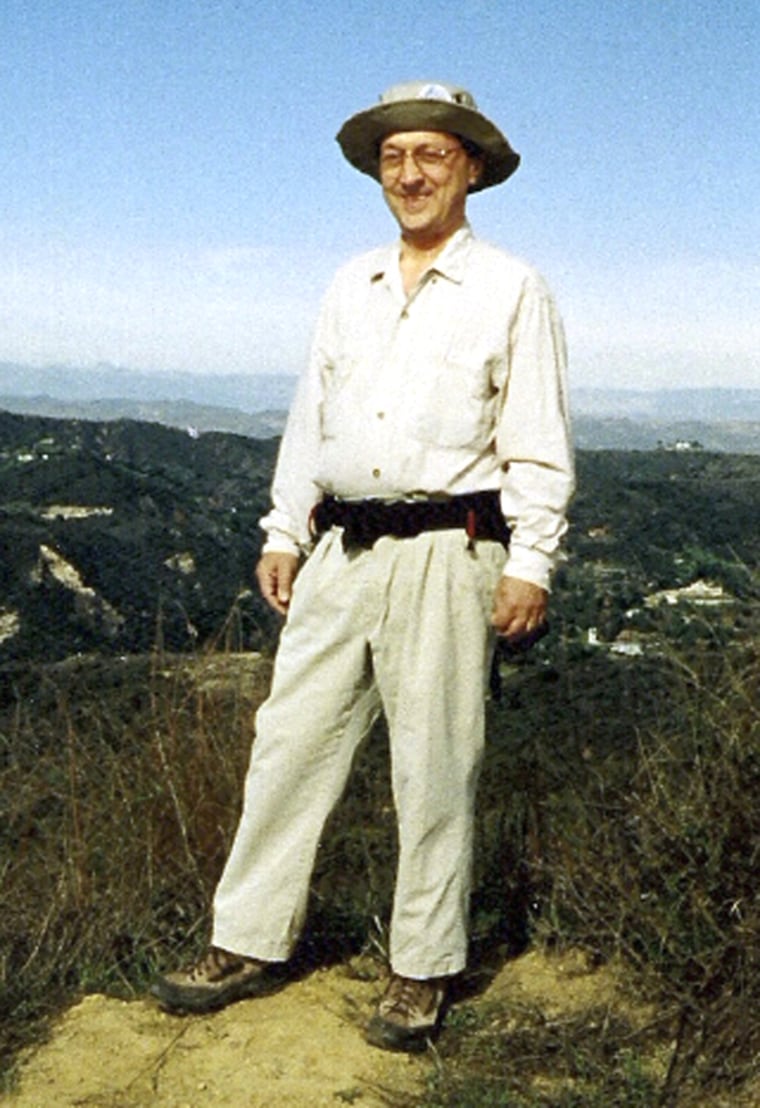A 64-year-old man who was stranded for six days in the Joshua Tree desert in Southern California said Tuesday he survived by staying still in a small canyon and moving only to follow the shade.
Edward Rosenthal said he became so weak that he couldn't sit up when a helicopter rescue crew finally found him last Thursday.
He was gaunt and a bit unsteady Tuesday at his first news conference since the ordeal in the desert, where he had lost 20 pounds.
His face was tan and leathery, and his eyes were tired but alert as he recounted the days without food or water, beyond the rain drops he caught in his mouth during a drizzle that came the day before he was rescued.
"I'm much more religious now," he said. "I prayed for rain and it rained."
His ordeal started Sept. 24 when Rosenthal went for a day hike but became disoriented after making a wrong turn while returning to his car.
In the days that followed, he wrote on his hat what he thought would be his last messages of love to his wife and daughter, and to offer plans for his funeral.
To his brother he wrote: "A brother like you, is all good and true." To his nephew: "Gideon — Kick soccer ass!"
He named pallbearers for his funeral, specified a menu and asked guests not to solemnly mourn him but to get drunk and celebrate his life instead.
Rosenthal, a prominent Los Angeles real estate broker, also recalled restricting his movements to use as little energy as possible, and using his prized walking stick to lift himself up and out of the sun just a few times a day.
"If I had to walk 10 steps, that was a big deal," said Rosenthal, who spoke in the dining room of Clifton's Cafeteria, a landmark restaurant he had brokered the sale of just days before leaving on what he thought would be a short hike in Joshua Tree National Park, where he had been many times.
After losing his bearings, he wandered some 25 miles in the searing heat to the canyon where he spent the following days with a horsefly that buzzed around him.
He was dehydrated when rescue crews airlifted him to a hospital and doctors told him his kidneys were in danger of failing. By Monday, he had recovered enough to return to his Culver City home.
He did not think he would have survived without the walking stick, the light rain and the small canyon that offered refuge from the sun.
"That little five-acre canyon saved my life. It always had some shade," he said.
